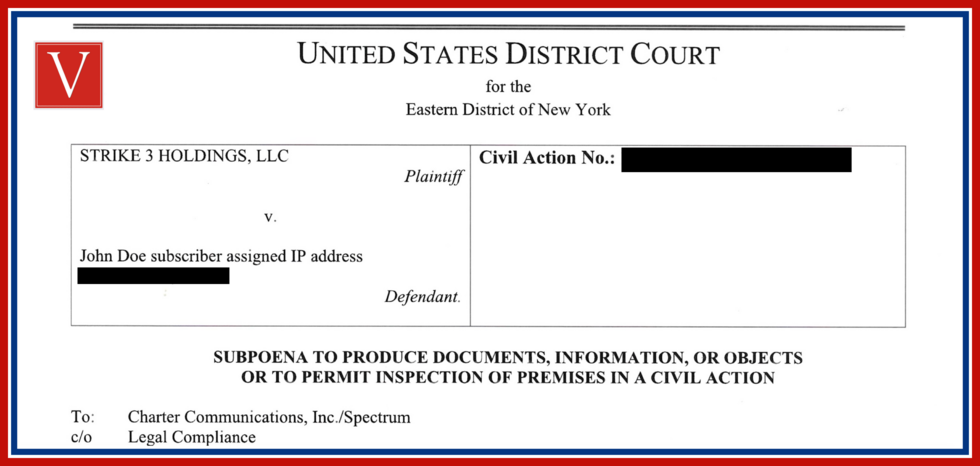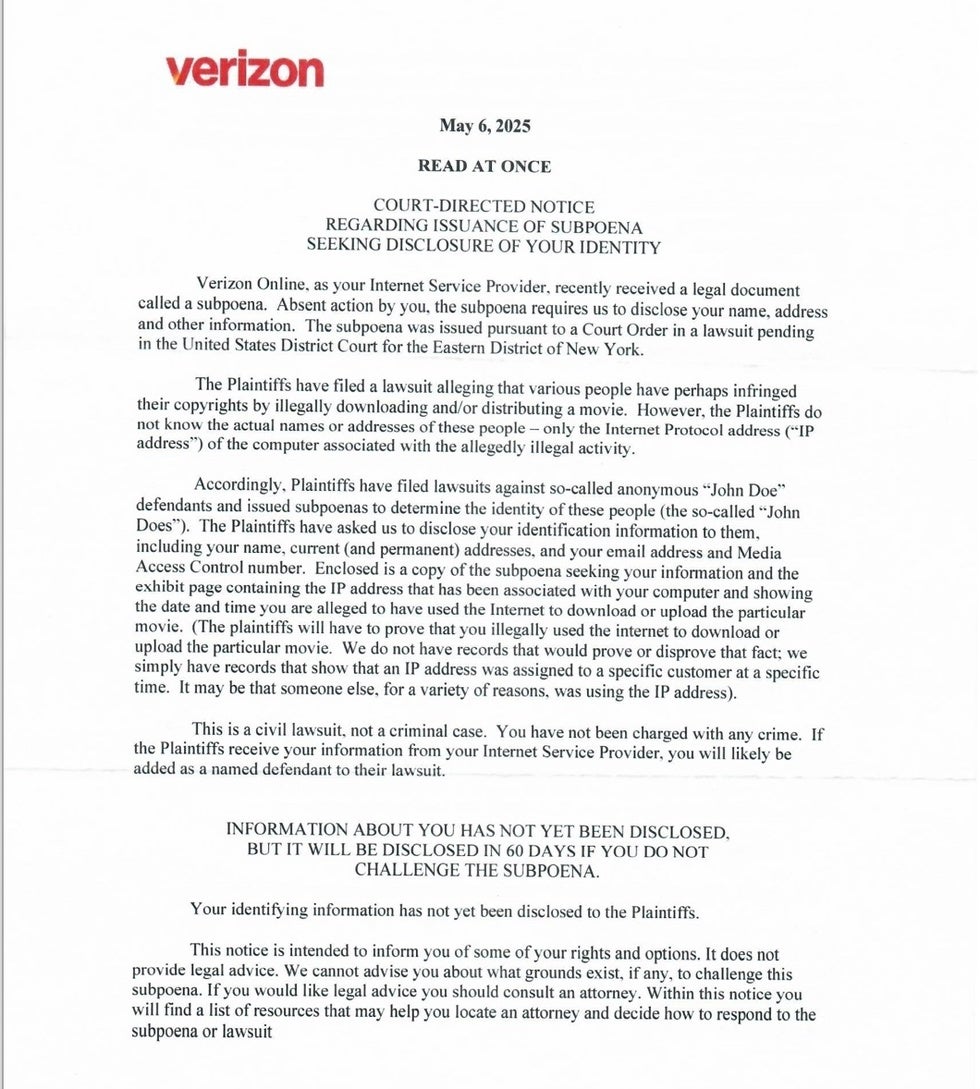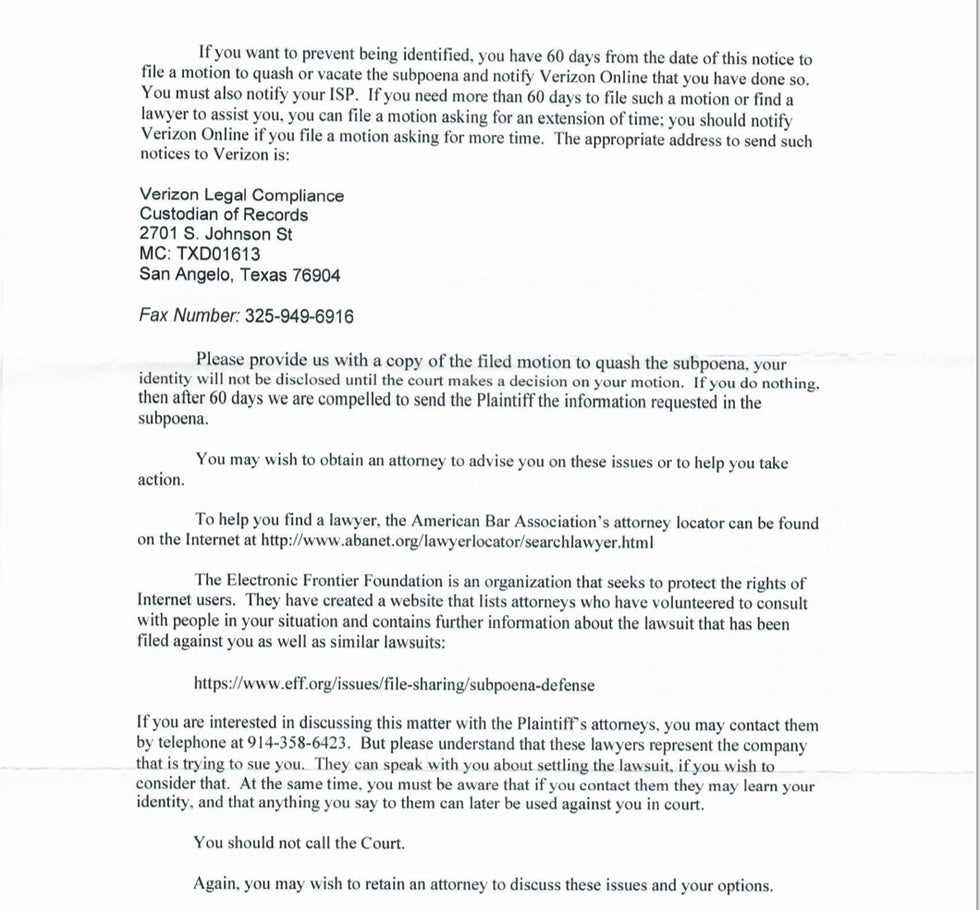
Introduction
After years of handling hundreds of Strike 3 Holdings (S3) copyright defense cases, there is one question I get seemingly more than any other. The question is this:
"should I contact my ISP to call off the subpoena?"
When you are being pursued for illegal downloads of S3 adult videos, S3 gets court permission to serve a subpoena on your ISP (e.g., Comcast, Verizon, AT&T, Charter, Cox, Frontier, Spectrum). The ISP then sends you (whoever the subscriber to the account is) a notice telling you that you can challenge the subpoena in court (for example, a motion to quash the subpoena) and to notify them. Here is a sample notice from Verizon:


Analysis
As you can see, the notice explains that the subscriber's information will be released in 60 days if not challenged by a motion to quashMany people naturally are keen to know more about a motion to quash and whether they need to notify the ISP on their end.
The short answer is federal court judges will not grant these motions, for the most part, barring some very exceptional grounds. Thus, the notice appears to provide hope to the litigant to keep their name and address private; however, in reality, this is not likely to happen.
More likely, a John Doe defendant will retain a copyright law firm, and they will seek to settle the case BEFORE their name and address are released (which provides true anonymity in the settlement). If the case is settled before the "release date" of the subpoena, then a "notice of abeyance" will be sent from the plaintiff's law firm, such as Bandlow Law in California, to the ISP calling off the subpoena, which the ISP will gladly do.
In some cases, a litigant may not have the funds to pay the hefty settlement demands (which can reach $30,000 or more) and will need to pursue a "hardship settlement" where financial documents such as tax returns and bank statements will be turned over, which will, of course, reveal the name and address of the internet subscriber in order to seek a lower settlement. In these cases, the subscriber's name and address will still NOT typically be added to the lawsuit or otherwise made public.
So, in the final analysis, while many receive this ISP notice and may believe there is something they can do to block the release of their private